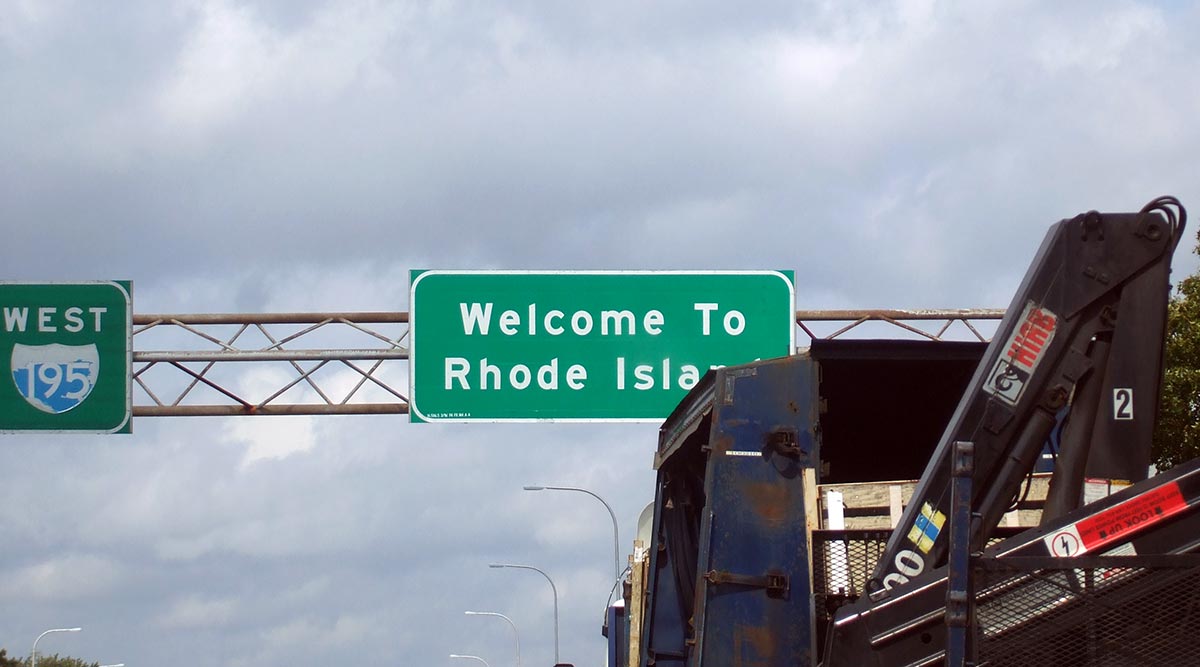Senior Reporter
Trucking Industry Disputes Revenue Projections for Rhode Island’s Truck-Only Tolling

Rhode Island House Republican minority leader Patricia Morgan and trucking industry leaders are disputing state Department of Transportation revenue projections for the truck-only tolling RhodeWorks program slated to be in place in 2018.
“The RhodeWorks bill is irresponsible,” Morgan said in a statement. “Effectively, out of the projected $42 million annual toll charges, only $7,397,500 or less than 17% will be available to repair bridges. Eighty-three percent will evaporate in avoidable costs.”
Morgan and Rhode Island Trucking Association President Chris Maxwell claim that state DOT officials have “propped up” projected revenues by not including such obligations as $25 million in debt retirement, nearly $9 million in reduced taxes and registration fees and other “costs and leakage” from the DOT budget.
As a result, last month Morgan unveiled legislation intended to undo the truck-only toll law that’s backed by the governor but opposed by state and national trucking associations, including American Trucking Associations.
Morgan’s measure includes a repeal of the law that imposes tolls on large commercial trucks. Morgan referred to RhodeWorks as an “irresponsible” measure that “should never have passed.”
Maxwell said his association continues to call for increases in the diesel fuel tax as well as registration fees that would bring in more revenue than the truck-only tolling plan.
Maxwell also has challenged the DOT’s schedule of bridge repairs, calling for the immediate formation of an independent oversight committee to review bridge inspection information related to RhodeWorks.
He said a case in point is more than $5 million in repairs for the Oxford Street Bridge in Providence, a structure that is not in need of rehabilitation.
“The Oxford Street Bridge has a 72% sufficiency rating, which means it’s in very good shape,” Maxwell said. “We have very serious concerns as to why RIDOT selected this location to spend our industry’s toll money and our taxpayer’s limited funds to essentially replace a structure that is in good condition while other bridges in our state are crumbling.”
“The only reason they’re doing this is to justify the placement of a truck-toll gantry in a highly traveled cash-rich area,” Maxwell told Transport Topics. “In other words, they are manipulating their selection of bridge replacement to justify the most lucrative location for truck tolls.”
The statements by Morgan and Maxwell brought immediate reaction from RIDOT.
“Let me be completely clear: We have a level-three traffic study conducted by outside experts that shows we will gross conservatively $45 million from our tolling program,” RIDOT Director Peter Alviti said in a May 24 statement. “We also have established the actual operation and maintenance costs that are in the contract with the company that will operate and maintain the tolling system.”
Costs associated with debt service have nothing to do with tolling, and to include them would be like considering the cost of plowing snow in relation to tolls, Alviti said.
The current superstructure condition of the Oxford Street Bridge is rated No. 5 by the Federal Highway Administration as confirmed in its bridge inspection reports, RIDOT said.
A rating of 4 will put the bridge into the structurally deficient category, which means it is dangerous and much more expensive to repair, RIDOT said. By preventing that decline, RIDOT will save millions of dollars and keep 163,000 cars that use the bridge safe, according to the agency.
But ATA President Chris Spear said the Rhode Island tolling plan attempts to “turn our trucks into rolling ATMs.”
“The onus is now on the Rhode Island Legislature to correct this ill-conceived plan,” Spear said recently. “ATA will take whatever steps are necessary to prevent these proposed tolls on overpasses, including litigation.”

